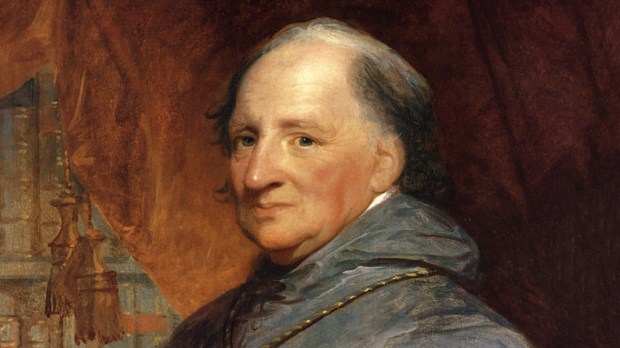Acts of kindness sometimes bear fruit that we never would have expected. That was illustrated clearly in the friendship between two “founding fathers” of the United States.
John Carroll, born in Maryland in 1735, came from a Catholic family that had several members playing an instrumental role in early American history. His older brother Daniel Carroll II (1730–1796) signed both the “Articles of Confederation and Perpetual Union” (1778) and the Constitution of the United States (1787). His cousin Charles Carroll (1737–1832) was also an important member of the Revolutionary cause and was the last surviving signer of the Declaration of Independence (1776).
John himself would go on to become the first Catholic bishop of the American hierarchy. He joined the Society of Jesus in 1753 and was ordained a priest in 1769, according to the Catholic Encyclopedia. Four years later, however, Pope Clement XIV issued a Bull suppressing and dissolving the Jesuits. The following spring, Carroll returned to Maryland, where local laws discriminated against Catholics. There was no public Catholic church in Maryland, so Father Carroll began the life of a missionary in Maryland and Virginia. He built a small chapel on his mother’s estate and offered Mass there on Sundays.
Meanwhile, America’s War of Independence began in 1775, and it was in the Colonies’ interest that their neighbor to the north remain neutral. Benjamin Franklin led a delegation from the Continental Congress to seek an alliance with Canada in February 1776. The delegation included Charles Carroll of Carrollton, who asked his priest cousin to join them. Unfortunately, they failed in their mission.
According to the website Ignatian Spirituality, Fr. Carroll accompanied an ailing Ben Franklin back to Philadelphia, caring for him in such a kind way that later, when asked by the Vatican to recommend a priest who would become the first bishop of the United States, Franklin offered Carroll’s name.
In the meantime, in the wake of the Revolutionary War, Carroll and other priests in the new United States began meeting to ensure that their mission would continue and be as effective as possible.
“In response to a petition sent by the Maryland clergy to Rome, 6 November, 1783, for permission for the missionaries here to nominate a superior who should have some of the powers of a bishop, Father Carroll, having been selected, was confirmed by the pope, 6 June, 1784, as Superior of the Missions in the thirteen United States of North America, with power to give Confirmation,” the Catholic Encyclopedia notes. The pope made him prefect apostolic the following year, and Carroll lobbied Rome for a “method of appointing Church authorities … that would not make it appear as if they were receiving their appointment from a foreign power.” The pope granted his request “that the priests in Maryland be allowed to suggest two or three names from which the pope would choose their bishop.”
Having experienced religious discrimination personally, he also lobbied Congress on the issue of religious liberty. The Catholic Encyclopedia believes Fr. Carroll is responsible for the First Amendment’s provision that “Congress shall make no law respecting an establishment of religion, or prohibiting the free exercise thereof,” and the Constitution’s provision in Article Six, Section 3, which declares that “no religious test shall ever be required as a qualification to any office or public trust under the United States.”
When, in 1788, the priests of the United States petitioned the Vatican for a bishop, Rome permitted them to vote on a candidate to present to the pope. Most voted for John Carroll, and Pius VI appointed him bishop. He would serve as bishop and archbishop of Baltimore for 35 years, until his death in 1815.
Among his many accomplishments, Archbishop Carroll was instrumental in founding Georgetown University. For the training of priests he invited the Sulpicians, who established St. Mary’s Seminary. He also encouraged St. Elizabeth Seton to establish the Sisters of Charity in the United States for the education of girls.

